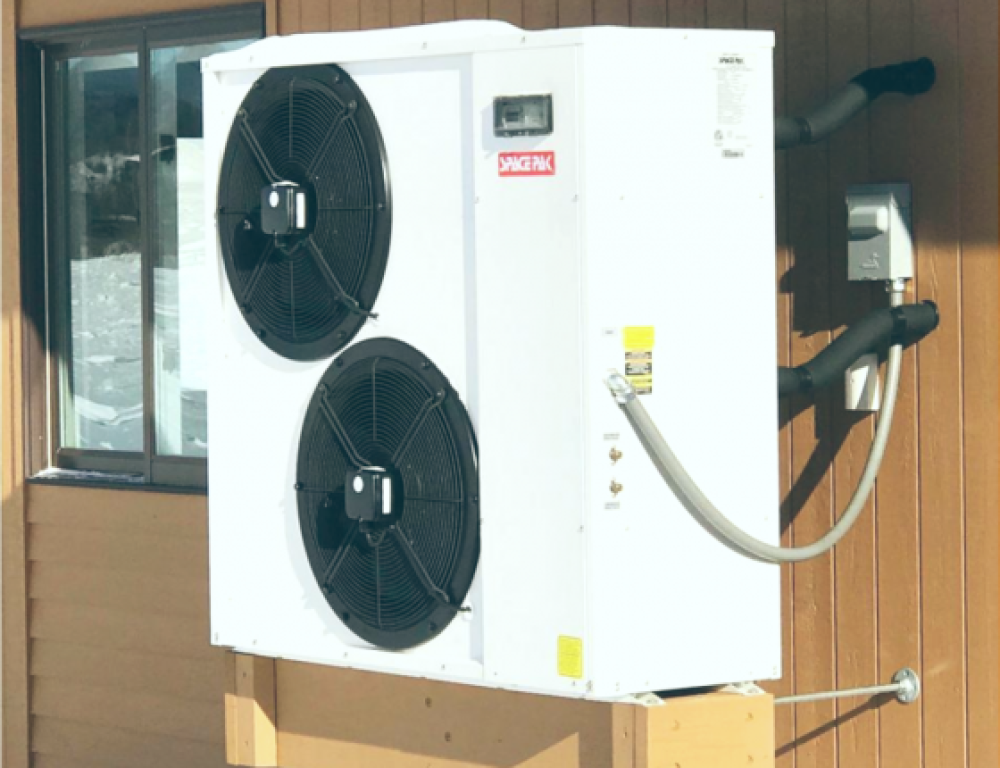This week, CEE researchers published results from a multiyear study of a specialized heat pump technology that uses electricity to move heat from outdoor air to indoor water. Findings were published in a report titled Air-to-Water Heat Pumps: A Cold Climate Solution for High-Efficiency Cooling, Space Heating, and Water Heating. The research was funded by the Minnesota Department of Commerce, Division of Energy Resources, through the Conservation Applied Research and Development program, with co-funding from project partners and from CEE in support of its nonprofit mission.
Air-to-water heat pump (AWHP) systems are high-performance space heating systems that offer air source heat pump efficiencies to customers with boilers and hydronic distribution systems such as radiators. Using water as a distribution medium enables AWHPs to integrate with domestic hot water loads, thermal energy storage, and even traditional furnaces and air handlers using a hydronic coil.
Over the course of two years, CEE researchers investigated a range of commercially available AWHP systems and installed four demonstration systems for heating and cooling in single-family homes. The team explored opportunities and considerations for the systems in cold-climate homes, including retrofits; characterized relevant systems and components; and assessed energy and cost savings.
Though well established and widely used in European and Asian markets, AWHP systems have yet to make their mark in North America. Nonetheless, America’s growing familiarity with air source heat pumps is now prompting more attention to the potentially valuable role the systems can play in bringing high efficiency to local water-based space heating systems.
Research highlights
-
Tested systems demonstrated savings of 6,300–16,600 kWh and $453–$1,450 per year when compared with electric boilers and propane furnaces. The project identified dozens of AWHP models and configurations suitable for a variety of cold-climate residential applications.
-
Specific to Minnesota, the team recommends aligning this subset of heat pump technology with other models and programs supported through Minnesota’s Energy Conservation and Optimization framework, which provides a holistic approach to energy efficiency programming.
-
To that end, CEE advocates the establishment of standardized ratings for AWHP systems to promote the technology as a flexible and effective heat pump solution.
Project team
Samantha Hill, PhD, research engineer
Josh Quinnell, PhD, senior research scientist
Ranal Tudawe, research engineer
Related Links
ABOUT CEE
CEE seeks a healthy, carbon-neutral economy that works for all people. A 501(c)(3) clean energy nonprofit with nearly 40 years' experience in energy efficiency, we align our strategies behind technical research, program development and implementation, community engagement, policy advocacy, and project financing. Working across homes, businesses, and communities, CEE discovers and deploys the most effective energy solutions to improve the environment and strengthen the economy for everyone.
Media contact: Tim Hanrahan, thanrahan@mncee.org
